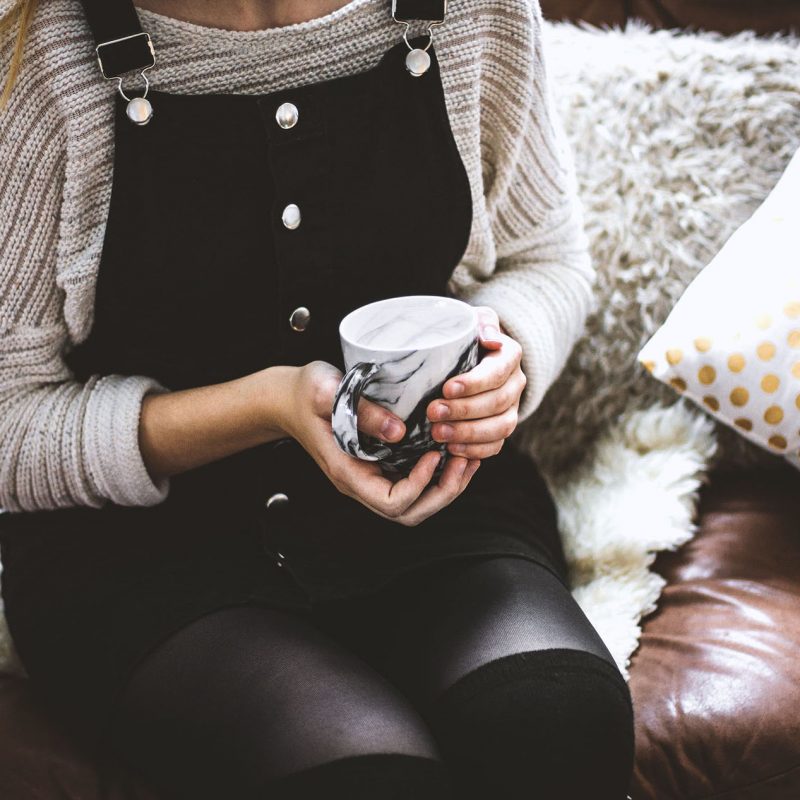Community Connections provides supports for individuals in a residential home- like setting. We start with an evaluation of the individual by our professional team members: Primary Therapist, Registered Dietitian/Nutritionist and Registered Nurse. From the evaluation an individualized treatment plan is developed to set the path for specific treatment goals. The multidisciplinary treatment team will work with the individual to move through the program, achieve his/her goals and have the tools to be successful in a less intensive level of care. The treatment team will assess the individual’s progress weekly to determine if he/she is ready for discharge. During the individual’s stay a daily treatment schedule is implemented to maintain consistent goal achievement. The treatment schedule includes: 24 hour a day supervised care, health; wellness checks, group therapy sessions, educational support groups, individual therapy sessions, family sessions, confidence building, nutritional counseling and education.
Community Connections offers several types of therapy for members who have been experiencing eating disorders, co-occurring disorders, the effects of trauma, and other mental health concerns. Therapy in our residential facilities incorporate the principles of Dialectical Behavior Therapy (DBT), Cognitive Behavioral Therapy (CBT), Motivational Interviewing, Eye Movement Desensitization and
Reprocessing (EMDR) and Emotion-Focused Therapy (EFT).
Individual therapy sessions at Community Connections are scheduled weekly
between the member and a licensed therapist or an eating disorder behavioral health professional.
Individual therapy is an opportunity for the member to process any successes or setbacks, address topics he/she may be hesitant to address in a group setting, and receive guidance or feedback. Individual therapy sessions are designed to address intimate treatment goals that are directly related to trauma, individual negative thought patterns or self-defeating behaviors. This is an opportunity to identify specific goals to make the changes that will allow he/she to achieve improved results.
In the residential facilities each member will meet their primary therapist weekly to address their specific goals and assess progress. Each month the member and his/her treatment team will meet to discuss progress in the program, make changes to the member’s service plan and discuss discharge planning.


Group therapy is a fundamental element of care at the residential level. A typical day at the residential facility includes multiple group therapy sessions.
Group therapy sessions usually involve a small number of members who are receiving care, plus the licensed therapist or dietitian who is facilitating group. Members will participate in several types of groups while in residential treatment at Community Connections, including process groups, psychotherapy, psycho-educational groups, and experiential groups.
Groups are safe and supportive places where you can process your experiences and share your insights with your peers. Group therapy also allows you to learn from others, practice healthy communication and conflict resolution skills.
Group therapy sessions address a multitude of topics.
In addition to group and individual therapy, residential treatment offers experiential treatment such as:

All members are encouraged and expected to be able to master menu planning and meal preparation prior to discharging from residential treatment. With the encouragement and side by side guidance of the therapist, dietitian and behavioral health staff all members will be assisted in choosing, prepping and mastering recipes in the kitchen of the residential facility. This experience promotes a healthy relationship with food and furthers a members ability to be independent upon discharge.
All members will be encouraged to challenge their cognitive distortions about food, expand their food choices and confront their fear of food. Members, accompanied by their dietitian, therapist and behavioral health staff will embark on restaurant experiential(s)/in home experiential(s) to practice meeting their meal plans and face the challenges of community eating. This provides each member with the opportunity to express fears, struggles, successes with their peers and treatment team.


Prior to discharge, each member will visit the grocery store to practice meeting their meal plan with the dietitian. They will discuss budgeting, fears, challenges and success. This will provide each member with the opportunity to return to residential treatment and plan for discharge without fear of the unknown. Grocery stores can be intimidating, but with preparation, fear can be eliminated or minimized to ensure success.
Members are encouraged to take passes while in residential treatment to prepare for discharge and practice the skills they have learned in treatment. At Community Connections, all members take home passes prior to discharge. This is developed and incorporated into the member’s treatment plan and discharge plan. The member will identify a successful discharge plan and by practicing those passes in the community, will have the opportunity to practice utilizing natural supports, planning for meals at home and identifying areas to continue to work on prior to discharge. This provides the member with the opportunity to discuss those areas of concern with the treatment team upon return from the pass and make potential changes to discharge planning or treatment goals prior to discharge.


We believe that members need to develop a sense of trust in their body and that self-care is an important component of any exercise or movement program. At Community Connections, we believe that members’ healing is centered around overall body and mind connections. It is this body-mind connection that we believe is vital to help ensure that a member’s relationship with exercise will be a healthy one in the future. Just like we do with food, we hope that an individual will be able to develop a mindful and intuitive relationship with exercise in their recovery. The movement and exercise that each member is exposed to in treatment will be guided by their treatment team and will work in conjunction with their individual service plan. It is important for us to integrate safe movement and exercise into our programs and to ensure that a member is ready for movement. Goals will be identified and accomplishments will be reviewed on a weekly basis to ensure that each member is making progress on their goal to develop an improved relationship with movement and body.
We recognize that each individual has a unique story, and his or her own distinctive strengths and challenges. With input from the individual, his or her loved ones, and our experts, we develop an Eating Disorder Treatment plan for each individual.
